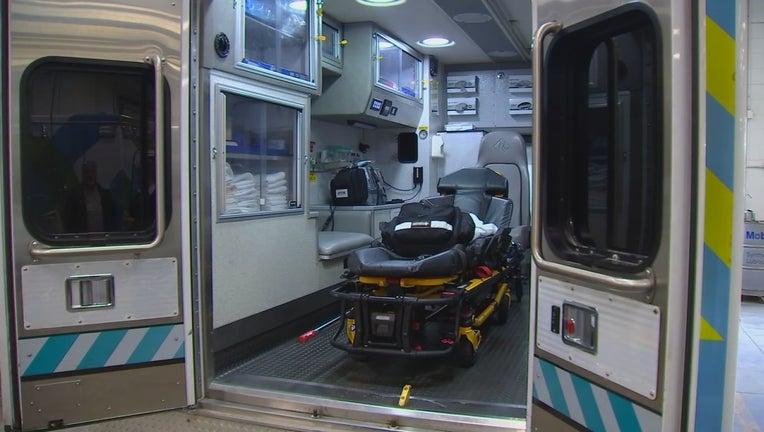How Minnesota emergency crews are adapting response amid the pandemic

Allina EMS Chief Susan Long shows the inside of an ambulance. (FOX 9)
MINNEAPOLIS (FOX 9) - The novel coronavirus pandemic is changing the way some frontline emergency workers are doing their job in the name of health and safety.
“We’d reuse the goggles and our N-95s, each individual can reuse it for a couple times,” said Allina EMS Chief Susan Long.

How Minnesota emergency crews are adapting response amid the pandemic
The novel coronavirus pandemic is changing the way some frontline emergency workers are doing their job in the name of health and safety.
Monday, Chief Long gave FOX 9 a look at the personal protective equipment her teams are using more frequently now.
“Our crews are on the front line,” she said.
With the threat of the COVID-19, first responders everywhere are changing the way they respond to emergencies. This involves not just with the safety gear they are donning, but also a streamlining of who shows up at a 911 call. It may mean just an EMS team respond with police and fire put on standby in case more help is needed.
Chief Long explained there’s now extra phone screening taking place with a caller before arrival. There’s also another assessment done from a distance at the scene to understand the coronavirus potential, especially with those suffering upper respiratory and breathing issues.
“It’s all Coronavirus every day, all day long,” said Long. “And we’re really making plans and working hard to make sure we are doing all the right things to not only protect our staff, but also our patients and our communities.”
In Plymouth, one thing the police department is doing to protect its men and women is spreading out work shifts for frontline patrol officers. This basically builds into a two-week quarantine period into their work schedules.
“It’s not necessarily unique to us,” said Plymouth Police Chief Mike Goldstein. “Others are doing something similar. We think it makes sense.”
With schools and most businesses quiet right now, Chief Goldstein has beefed up his patrol unit to about 50 officers and assigned a five-day workweek of 12-hour shifts followed by 15 days off.
The city is still paying full salary and benefits. The chief believes the move will better protect his officers and the community members they encounter from illness.
As for avoiding the coronavirus altogether, Goldstein knows that’s impossible for those sworn to protect and serve.
“In urgent situations, yeah we are going to sacrifice our own safety and health in certain cases,” he said. “In others, we’ll try to be smart and distance ourselves, but there are certain emergencies that we just have to totally engage in.”

